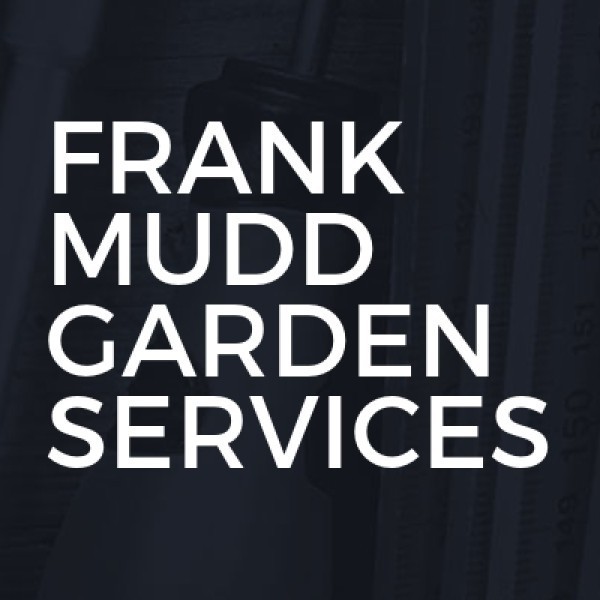Garden Fencing in Suffolk
Search Garden Fencing in Suffolk by town
Introduction to Fencing in Suffolk
Fencing in Suffolk is a fascinating topic that combines history, culture, and practicality. Nestled in the picturesque landscapes of East Anglia, Suffolk is renowned for its charming villages, rolling countryside, and historical landmarks. Fencing, both as a sport and a means of property delineation, plays a significant role in this region. Whether you're interested in the traditional art of fencing or the practical aspects of installing a fence, Suffolk offers a rich tapestry of opportunities and insights.
The Historical Significance of Fencing in Suffolk
Suffolk's history is deeply intertwined with the art of fencing. Historically, fencing was not just a sport but a vital skill for self-defence and military training. The region's historical estates and castles often featured fencing as a part of their defence strategy. Over the centuries, fencing evolved from a martial necessity to a refined sport, with Suffolk playing a pivotal role in this transformation.
Fencing as a Sport
In Suffolk, fencing as a sport has gained popularity over the years. Local clubs and schools offer training in various fencing styles, including foil, épée, and sabre. These clubs not only teach the technical skills required for fencing but also instil values such as discipline, respect, and sportsmanship. The sport's growth in Suffolk is supported by a community that values tradition and innovation.
Fencing for Property and Security
Beyond the sport, fencing in Suffolk serves practical purposes. Property owners use fences to delineate boundaries, enhance security, and add aesthetic value to their homes. The choice of fencing materials and styles varies, reflecting the diverse architectural heritage of the region. From traditional wooden picket fences to modern metal designs, Suffolk's fencing landscape is as varied as its history.
Types of Fencing in Suffolk
When it comes to fencing in Suffolk, there's no one-size-fits-all solution. The region's diverse landscapes and architectural styles call for a variety of fencing options. Let's explore some of the most popular types of fencing found in Suffolk.
Wooden Fencing
Wooden fencing is a classic choice for many Suffolk homeowners. Its natural appearance blends seamlessly with the rural landscape, providing both privacy and charm. Common styles include picket fences, closeboard panels, and post-and-rail designs. Wooden fences are often treated to withstand the elements, ensuring longevity and durability.
Metal Fencing
For those seeking a more modern look, metal fencing offers a sleek and durable option. Materials such as wrought iron, steel, and aluminium are popular choices. Metal fences are known for their strength and low maintenance requirements. They can be customised with intricate designs, adding a touch of elegance to any property.
Vinyl and Composite Fencing
Vinyl and composite fencing are gaining popularity in Suffolk due to their durability and low maintenance. These materials mimic the appearance of wood but do not require painting or staining. They are resistant to rot, insects, and weather damage, making them an excellent choice for those looking for a long-lasting fencing solution.
Choosing the Right Fencing for Your Suffolk Property
Selecting the right fencing for your property involves considering several factors, including aesthetics, functionality, and budget. Here's a guide to help you make an informed decision.
Assessing Your Needs
Before choosing a fence, it's essential to assess your needs. Are you looking for privacy, security, or simply to enhance your property's appearance? Understanding your primary goals will help narrow down your options.
Considering the Landscape
Suffolk's diverse landscapes require careful consideration when selecting fencing. For rural properties, a wooden or post-and-rail fence may complement the natural surroundings. In urban areas, a sleek metal or vinyl fence might be more appropriate.
Budget and Maintenance
Budget is a crucial factor in any fencing project. Wooden fences may have a lower upfront cost but require regular maintenance. Metal and vinyl fences, while more expensive initially, offer long-term savings due to their durability and low maintenance needs.
Fencing Regulations and Permissions in Suffolk
Before installing a fence in Suffolk, it's important to be aware of local regulations and permissions. These guidelines ensure that your fencing project complies with legal requirements and respects community standards.
Understanding Local Regulations
Fencing regulations in Suffolk vary depending on the location and type of property. It's essential to check with your local council for specific guidelines. Common regulations include height restrictions, boundary agreements, and materials used.
Obtaining Necessary Permissions
In some cases, you may need planning permission for your fencing project. This is particularly true for properties in conservation areas or those with listed status. Consulting with local authorities early in the planning process can help avoid potential issues.
Fencing Installation and Maintenance Tips
Proper installation and maintenance are key to ensuring the longevity and effectiveness of your fence. Here are some tips to help you get started.
Hiring a Professional Installer
While DIY fencing projects can be rewarding, hiring a professional installer ensures that the job is done correctly and efficiently. Professionals have the expertise and tools needed to handle various terrains and materials, reducing the risk of errors.
Regular Maintenance Practices
Regular maintenance is crucial for keeping your fence in top condition. Wooden fences should be treated and painted periodically to prevent rot and weather damage. Metal fences may require occasional cleaning and rust prevention treatments. Vinyl and composite fences are low maintenance but should be checked for damage regularly.
Fencing and Wildlife in Suffolk
Suffolk's rich biodiversity means that fencing can impact local wildlife. It's important to consider the ecological implications of your fencing choices.
Wildlife-Friendly Fencing Options
To minimise the impact on wildlife, consider using wildlife-friendly fencing options. These include fences with gaps or raised sections that allow small animals to pass through. Avoid using barbed wire or other materials that could harm animals.
Creating Habitats with Fencing
Fencing can also be used to create habitats for wildlife. Planting hedgerows or climbing plants along your fence can provide shelter and food for birds and insects. This not only benefits the environment but also enhances the beauty of your property.
Fencing Clubs and Events in Suffolk
For those interested in fencing as a sport, Suffolk offers a vibrant community of clubs and events. These provide opportunities for learning, competition, and socialising.
Joining a Fencing Club
Joining a local fencing club is a great way to learn the sport and meet like-minded individuals. Clubs offer training sessions, equipment rental, and opportunities to compete in local and national tournaments. They cater to all skill levels, from beginners to advanced fencers.
Participating in Fencing Events
Suffolk hosts a variety of fencing events throughout the year. These include competitions, exhibitions, and workshops. Participating in these events is a fantastic way to improve your skills, gain experience, and enjoy the camaraderie of the fencing community.
Fencing Suppliers and Services in Suffolk
Finding the right suppliers and services is crucial for a successful fencing project. Suffolk boasts a range of businesses that cater to all your fencing needs.
Local Fencing Suppliers
Local suppliers offer a wide selection of fencing materials, from traditional wood to modern composites. They can provide expert advice on the best options for your property and budget. Supporting local businesses also helps strengthen the community.
Fencing Services and Contractors
In addition to suppliers, Suffolk is home to numerous fencing contractors who offer installation and maintenance services. These professionals have the skills and experience needed to ensure your fencing project is completed to the highest standards.
Frequently Asked Questions
- What types of fencing are popular in Suffolk? Wooden, metal, vinyl, and composite fencing are popular choices in Suffolk, each offering unique benefits.
- Do I need planning permission for a fence in Suffolk? It depends on the location and type of property. Check with your local council for specific regulations.
- How can I make my fence wildlife-friendly? Consider using fences with gaps or raised sections and avoid harmful materials like barbed wire.
- Are there fencing clubs in Suffolk? Yes, Suffolk has several fencing clubs that offer training and competition opportunities.
- What is the best material for a low-maintenance fence? Vinyl and composite materials are known for their durability and low maintenance requirements.
- How often should I maintain my wooden fence? Wooden fences should be treated and painted periodically to prevent damage from the elements.
Final Thoughts on Fencing in Suffolk
Fencing in Suffolk is a multifaceted topic that encompasses history, sport, and practicality. Whether you're interested in the traditional art of fencing or the practical aspects of property delineation, Suffolk offers a wealth of opportunities and insights. By understanding the various types of fencing, considering local regulations, and exploring the vibrant fencing community, you can make informed decisions that enhance your property and enrich your life. With careful planning and consideration, your fencing project in Suffolk can be a rewarding and successful endeavour.







